Business
Tinubu to Commission $115M Upgraded WACT Terminal in Onne Today

In a significant development for Nigerian maritime logistics, President Bola Ahmed Tinubu will inaugurate the newly upgraded West Africa Container Terminal (WACT) in Onne, Rivers State today. The facility, operated by APM Terminals, is now Nigeria’s largest and most efficient container terminal outside Lagos, marking a major advancement in the nation’s port infrastructure.
The $115 million (approximately N178.2 billion) upgrade project, which began in 2021, reflects APM Terminals’ and its partners’ commitment to enhancing Nigeria’s maritime capabilities. Jeethu Jose, Managing Director of WACT, highlighted the transformative impact of this upgrade, describing it as a historic milestone for the Nigerian port sector.
“We are excited to announce the completion of our terminal upgrade at Onne Port. This development is set to revolutionize Nigeria’s maritime landscape, and we are eager about the future it promises,” Jose stated. “The $115 million investment not only underscores APM Terminals’ confidence in the Nigerian economy but also supports our mission to improve global trade while enhancing lives.”
WACT has a notable history as Nigeria’s first greenfield container terminal developed under a Public-Private Partnership (PPP) model. Located within the Oil and Gas Free Zone in Onne, the terminal has become a crucial trade gateway, extending beyond Lagos and serving as an essential conduit for Eastern Nigeria’s economic activities.
The terminal’s expanded capabilities were highlighted on August 15, 2020, when it welcomed the largest container vessel ever to dock at any Nigerian port. The Maersk Stadelhorn, measuring 300 meters in length and 48.2 meters in width, with a capacity of around 10,000 Twenty-Foot Equivalent Units (TEU), demonstrated the terminal’s enhanced operational capacity and its role in supporting large-scale trade.
The commissioning ceremony is anticipated to draw numerous high-profile dignitaries, including governors, ministers, and heads of key government agencies such as the Nigerian Ports Authority (NPA), Nigeria Customs Service (NCS), Nigerian Immigration Service (NIS), Nigerian Shippers’ Council (NSC), Nigerian Maritime Administration and Safety Agency (NIMASA), and the Oil and Gas Free Zones Authority (OGFZA). Major shipping companies, freight forwarding associations, importers, and exporters will also be in attendance, highlighting the broad support and anticipation for this development.
The upgraded WACT terminal is expected to significantly boost economic growth for Rivers State and Nigeria as a whole. By enhancing the efficiency and capacity of Nigerian ports, the terminal will help alleviate congestion at the Lagos ports, streamline trade routes, and reduce shipping delays. This development aligns with the federal government’s broader economic agenda to diversify and strengthen non-oil sectors through improved infrastructure, public-private partnerships, and enhanced global competitiveness.
As Nigeria adapts to the evolving global trade environment, the upgraded WACT terminal stands as a symbol of progress and a testament to the nation’s readiness to meet modern trade demands while building a resilient and prosperous future.
Business
CBN expresses commitment to FX Code

The Central Bank of Nigeria (CBN) has reaffirmed its commitment to the Nigerian Foreign Exchange (FX) Code, stating that its operations align with the principles of the code.
In a statement signed by Governor Olayemi Cardoso, Deputy Governor of Economic Policy Mohammad Abdullahi, and Director of the Financial Markets Department Dr. Omolara Duke, the apex bank emphasized that its decision follows a review of the FX Global Code and recognition that the code represents a set of principles widely acknowledged as good practice in the foreign exchange market.
The statement confirmed that the CBN acts as a regulator to market participants as defined by the code and is committed to overseeing FX market activities in a manner consistent with its principles.
“To this end, the Bank has taken appropriate steps, based on the size and complexity of the FX Market, and therefore aligns its roles with the principles of the Code,” the statement added.
Business
FG launches electronic asset register to boost investment

The Federal Government has launched a national electronic assets register to provide real-time access to information on government-owned assets, aiming to enhance transparency and attract more investments into the country.
The digital registry was introduced by the Accountant General of the Federation, Dr. Oluwatoyin Madein, during an event that also featured the unveiling of a compendium of FAAC allocations to federal, state, and local governments from 2020 to 2023.
Madein described the initiative as a major milestone in improving public resource management, emphasizing that it is essential for financial sustainability and integrity. She stated that the project aligns with the government’s commitment to transparency and accountability in handling public funds and assets.
She noted that giving citizens access to information about public asset management would increase government accountability. “Whether it is infrastructure, equipment, or other public property, every asset must be accounted for,” she said.
The real-time access provided by the digital register is expected to support policy formulation, budgeting, and planning. Madein explained that by having a clear understanding of the government’s assets and their conditions, policymakers can make more informed decisions on resource allocation, investment management, and potential privatisation or public-private partnerships (PPPs) for underutilized assets.
She added that the initiative also aligns with international best practices, supporting Nigeria’s adoption of the International Financial Reporting Standards (IFRS) and the International Public Sector Accounting Standards (IPSAS). These standards will help strengthen the credibility and integrity of the country’s financial statements.
On the compendium of FAAC allocations, Madein stated that it provides a detailed breakdown of revenue distribution to the three tiers of government and serves as a valuable resource for policymakers, researchers, and the general public.
Minister of State for Finance, Doris Uzoka-Aniete, who officially unveiled the compendium, praised the Accountant General’s efforts in promoting transparency and accountability. She described the electronic asset register as an important tool that will help determine the real value of Nigeria’s assets and create opportunities for local and foreign investment.
Business
Tariff increase will push available power generation to 7,000MW — Minister
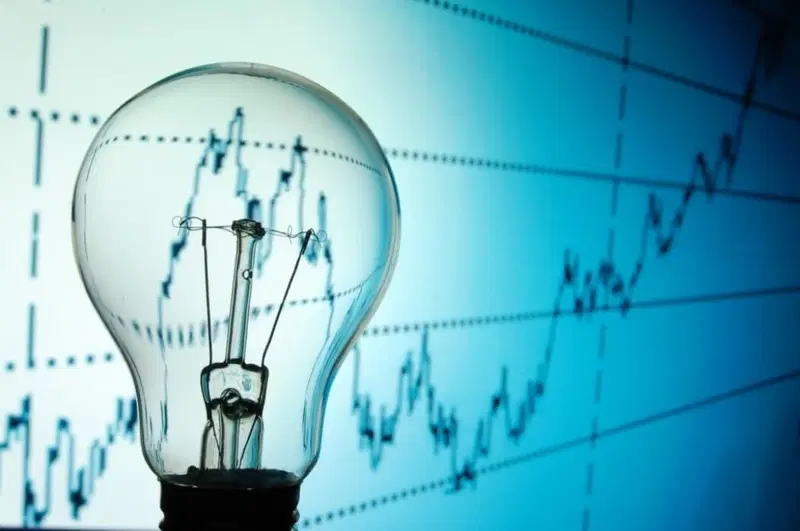
Minister of Power, Chief Adebayo Adelabu, has stated that the proposed electricity tariff increase will help boost Nigeria’s available power generation capacity to 7,000 megawatts (MW). This comes after the country recorded its highest-ever available power generation of 6,003MW and a peak evacuation of 5,801.84MW last week.
In a statement issued by his Special Adviser on Strategic Communication, Bolaji Tunji, Adelabu emphasized that tariff regularization is crucial for unlocking the sector’s full potential and sustaining ongoing improvements in power generation and distribution.
“To sustain these improvements, the government would have to pay down the tariff shortfalls of N1.94 trillion for 2024 and address legacy debts of N2 trillion to the GENCOs,” the minister said. He added that continued tariff reforms are necessary to ensure that consumers start paying for the energy they consume.
Adelabu reiterated the government’s intention to raise electricity tariffs for customers in Bands B, C, and D as part of efforts to enhance the sector’s liquidity and reduce subsidy obligations. The planned tariff hike is expected to narrow the gap between Band A customers—who currently pay higher rates—and those in lower bands.
The minister noted that Nigeria recently set another milestone with a daily maximum energy output of 128,370.75 megawatt-hours (MWh), attributing these achievements to ongoing reforms and infrastructural upgrades in the sector.
“We are thrilled to announce these historic milestones in Nigeria’s power sector,” Adelabu stated. “These achievements represent a brighter future where businesses can thrive, households can enjoy uninterrupted power supply, and the economy can grow sustainably.”
According to the minister, recent improvements result from collaborative efforts by the Federal Ministry of Power and key stakeholders to address longstanding challenges in the sector. These include the rehabilitation and upgrading of transmission and distribution networks, implementation of innovative technologies to enhance efficiency, and policy reforms aimed at improving accountability and sustainability.
While celebrating these milestones, Adelabu called for continued support from state governments, private sector stakeholders, and the general public. He stressed the need for collective action to sustain the momentum and build upon the progress made.
With power generation at a record high and tariff reforms on the horizon, stakeholders are hopeful that Nigeria’s electricity supply will see lasting improvements, ensuring stable and reliable power for businesses and households nationwide.
-

 News24 hours ago
News24 hours agoIPOB’s lawyer accuses Anambra govt of violating citizens’ rights, wants all arrested charged to court
-

 News24 hours ago
News24 hours agoOpposition no longer safe with recruitment of Osun PDP members into Amotekun – APM
-

 News24 hours ago
News24 hours agoOsun Amotekun recruits accuse Adeleke’s govt of nepotism
-
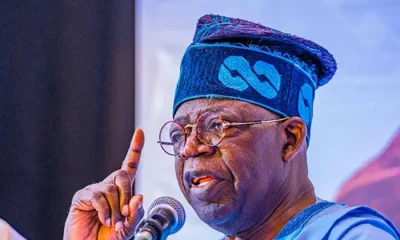
 News20 hours ago
News20 hours agoPANDEF Clarifies Visit To Tinubu, Knocks Wike Over Inflammatory Comments
-

 Foreign6 hours ago
Foreign6 hours agoJudge blocks Trump from deporting non-citizens using wartime law
-
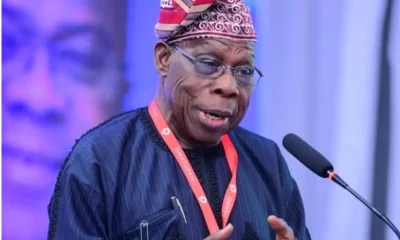
 News6 hours ago
News6 hours agoObasanjo bemoans selection process of traditional rulers in Nigeria
-
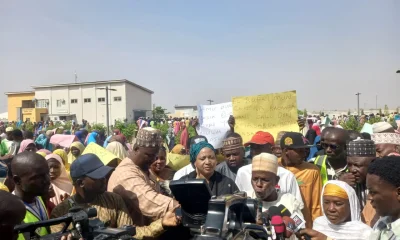
 News6 hours ago
News6 hours agoMarket associations, women groups knock el-Rufai, rally support for Tinubu, Gov Sani
-
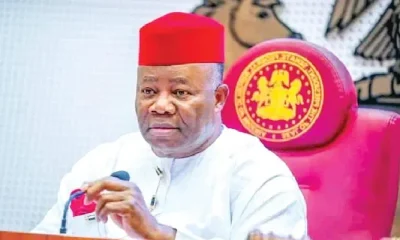
 News6 hours ago
News6 hours agoSERAP sues Akpabio over ‘failure to reverse unlawful suspension of Natasha Akpoti’






